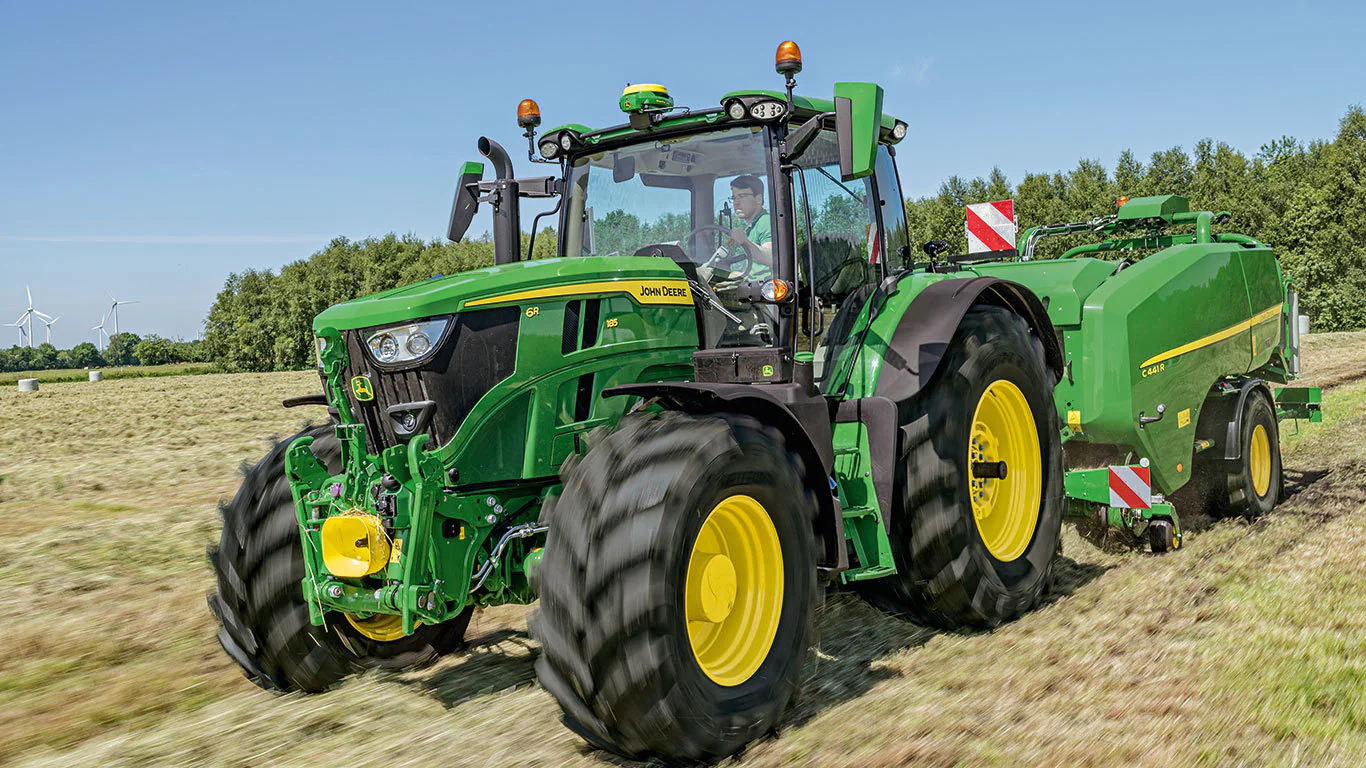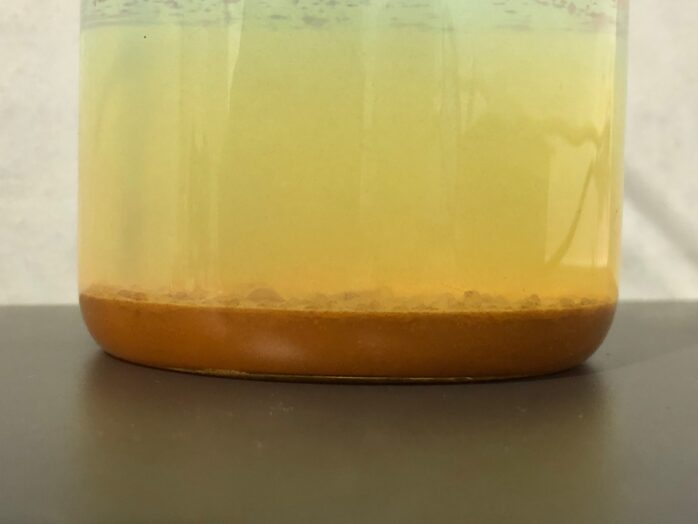
John Deere tractor turns over but won’t start; what should I do? This is the most common question I hear from the John Deere tractor owners. However, the majority of them are not aware of the reason because of which the engine of the tractor is acting up. This, in turn, impacts their ability to search for a suitable solution.
After thinking carefully about the issue and being a Deere tractor owner for a few years myself, I have come up with a detailed review on the potential reasons and solutions for the starting problem of the John Deere tractor. So keep reading the article to get an answer to your question ”John Deere tractor turns over but won’t stop: reasons and solutions.”
John Deere Tractor Turns Over But Won’t Start: Reasons & Solutions
Clogging of the Fuel Tank
First of all, we suggest checking your fuel tank in case of any performance issue with the engine. Most of the time, there is clogging inside the fuel filter that can prevent the fuel from processing inside the engine. To resolve such issues, you should monitor the situation of the fuel filter. Identify whether there is any dirt clogging inside the filter that might be blocking the fuel from reaching the engine.
Once the problem has been identified, you can proceed with the solution. In order to resolve the issue of clogging, we recommend cleaning the filter and removing all the dirt that might be sucked inside the filter. However, be extremely careful while doing so, as the filters are sensitive in nature and can easily get damaged if treated harshly. You can use some soft material for this purpose or remove the filter and then wash it to eliminate the residual dirt. Afterward, dry the filter and then reinsert it back to the fuel tank.
Clogging of Fuel Cap
Another culprit behind the poor engine performance can be the clogging of the fuel cap. Oftentimes, this factor can reduce the starting ability of the tractor and might give you a severe headache if you are unaware of the problem. One thing that must be kept in mind in this regard is that the tap should be open at all times to ensure the proper functioning of the tractor.
Closed taps hinder the normal functioning of the vehicle and can affect the circulation of fuel around the engine. To identify the problem associated with the fuel cap, small tests can be performed at home. You can begin by opening the cap and monitoring whether the fuel is draining or not.
If you observe any issue with fuel drainage, you should search for potential clogging. Apart from this, you must also ensure the opening of the wall while clearing the dirt that might be stuck inside the cap. Damage to the valve can further lead to serious issues that might require professional help. If you feel that clogging is more than expected, we also suggest replacing the cap for best results.
Identify Fuel Contamination

Next up on the list is fuel contamination. If the fuel is contaminated due to external factors, the tractor will not start despite your efforts. The gasoline contamination can be identified by smelling the fuel. If you observe a foul smell or witness some contamination or change in the color of the fuel, it is the right time to replace it.
It can be carried out by removing all the fuel from the tank, flushing it, and refilling it with clean diesel to ensure its proper functioning. We have also observed the contamination of fuel with small microorganisms such as fungi and other bacteria. These organisms can stay inside the fuel for a long time and can also damage your tank. Similar steps in the case of other contaminants must be performed to replace the old fuel with the new one.
Poor Quality Diesel
The quality of the fuel you are using for operating the tractor is another element that must never be neglected for a long-lasting vehicle engine. Poor quality fuel can significantly impact the starting ability of the tractor and, therefore, should be avoided for proper functioning.
Similarly, the fuel should not be kept inside the tank for a long time as it can get stuck on the bottom of the tank and might lead to clogging. So, we recommend replacing the fuel every few months to prevent issues with the engine. Moreover, the fuel should be purchased from well-known brands so that you are aware of its quality.
Battery Problems

Sometimes the issues with the battery can also affect the normal starting procedure of the John Deere Tractor. This often occurs when the power supply is interrupted, and it can not reach the engine. In such cases, troubleshooting can help to identify the problem with the battery and can also propose various solutions that can help you resolve this issue. Various users report that they are able to hear a clicking sound when they press the start button; however, the engine does not start.
For such cases, a simple test can be performed at home to check if the batteries are functioning properly. This can be carried out by removing the cap on the engine and using the mixture of baking soda and water to clean the area. This mixture is abrasive in nature and eliminates all the harmful chemicals that might get stuck on the surface of the cap. Afterward, it is advised to dry the terminals before reinserting the caps.
Then try to restart the engine and check if it is working properly. If the problem has been resolved, you can move on with the regular tasks. If not, check whether the battery is dead. If the battery is not working properly, you might want to consider replacing the battery. The status of the battery can be identified by checking its physical condition. If your battery is displaying the signs of bloating, swelling, and leaking, then it indicates that it is probably dead and needs replacement as soon as possible.
Mintor the Fuel Level
Last but not least, the decreased oil level can also affect the ability of the John Deere tractor to start. Before starting your work on a daily basis, we always recommend checking the oil level to prevent future performance issues. To measure the oil level, you can use various measuring cylinders or check the consistency of the oil.
Once you observe that the fuel is below the required level, you should refill the tank as soon as possible to maintain the balanced amount of fuel inside the engine. The low fuel content can put excessive stress on the engine, which can shorten its lifespan to a great extent. Similarly, if you observe that the oil has started blackening, you should immediately replace it with the new fuel to avoid contamination.
In addition to this, the older oil contains ethanol which might lead to issues such as corrosion. Similarly, thick fuel often contains gel, varnish, and other related materials that are often left behind when it evaporates. These materials can stick to the surface of the tank and can lead to clogging if not removed immediately.
Frequently Asked Questions
Why is my John Deere tractor cranking but not starting?
There might be a variety of reasons that your John Deere tractor might not be starting. These might include various issues with the fuel, or there might be clogging inside the fuel tank. Apart from this, various consumers also report the problems with the fuel cap and the contamination of the fuel, which can impact the normal functioning of your tractor. To identify the reason behind its poor performance, you can troubleshoot the tractor and then take the required steps to resolve the issue.
Why does my tractor keep shutting off?
Various causes of the tractor shutting down have been identified over the years. The most common among which include the clogging of the fuel tank and damaged fuel cap. Similarly, in case of sudden power interruption such as battery issues, the tractor might also stop working immediately. You should regularly lookout for potential clogging and clean the filters properly to prevent the buildup of dirt and grease inside the filters.
How often should a tractor engine oil be replaced?
As a general rule of thumb, it is recommended to replace your engine fuel after 25 to 35 hours of use. But, if you observe that the fuel has started blackening and is not working effectively, you need to replace it immediately to avoid performance issues. This can be carried out by removing the oil from the tank. Then, clean the tank properly and remove all the contaminants that might be stuck at the bottom. After this, you need to dry the tank properly and then fill it with the new fuel.
Wrapping Up
If you possess a John Deere tractor, you might face problems in starting the tractor, especially if you do not clean it regularly. This might be due to problems with the engine or the fuel tank. The most common issues that we have observed while using the tractor include the clogging of the fuel filters and problems with the fuel cap.
Similarly, some users also face the problem of fuel contamination and reduced fuel levels. If you face the problem of engine start, then you should look out for these issues. If the fuel filter and cap are intact, then you should troubleshoot the tractor for battery and power interruptions. Moreover, you can read this article on the “John Deere tractor turns over but won’t start: reasons and solution” for more information in this regard.






